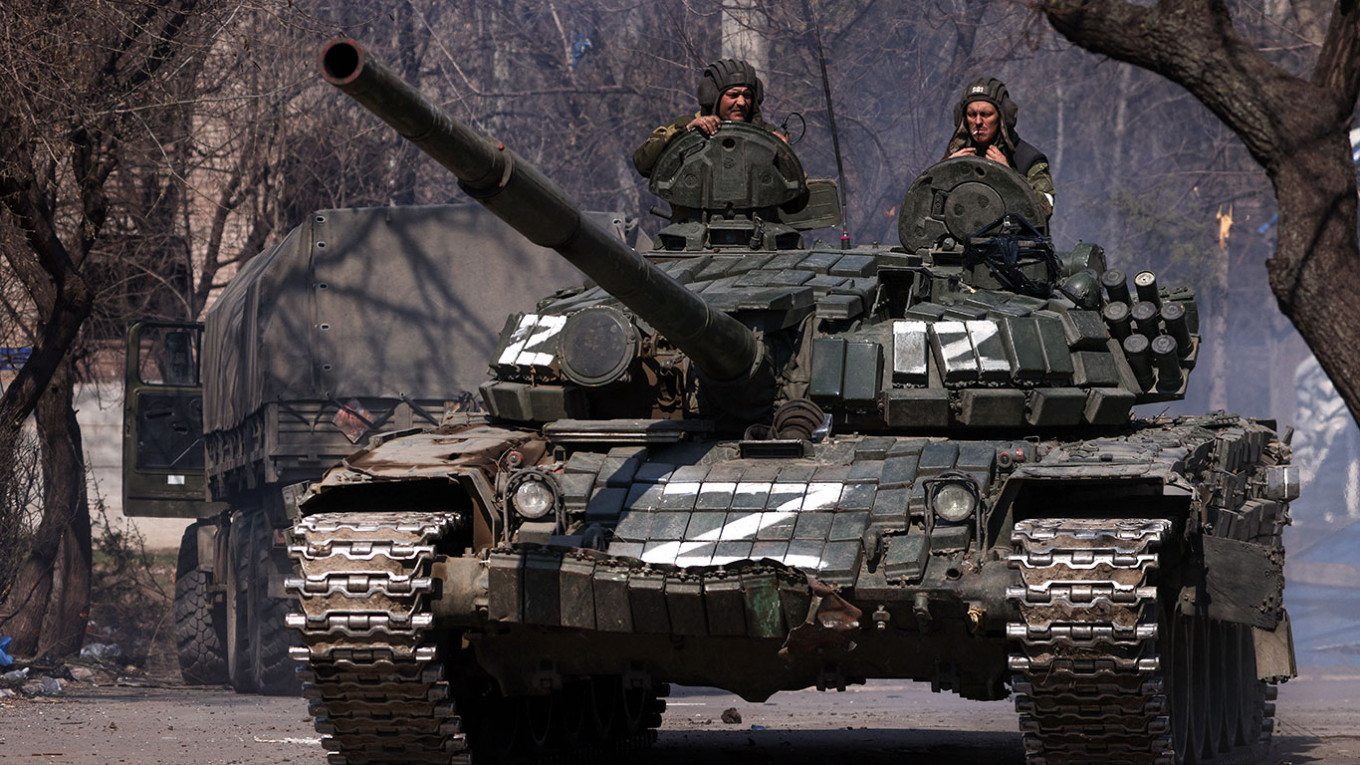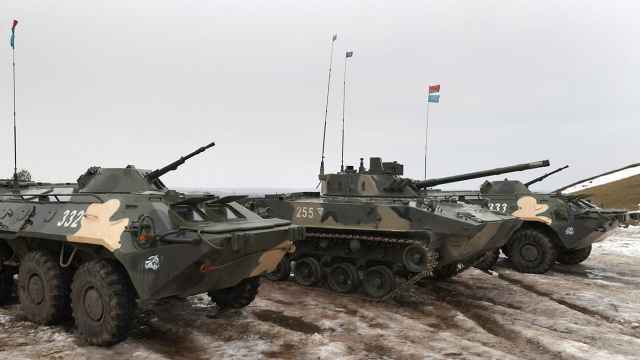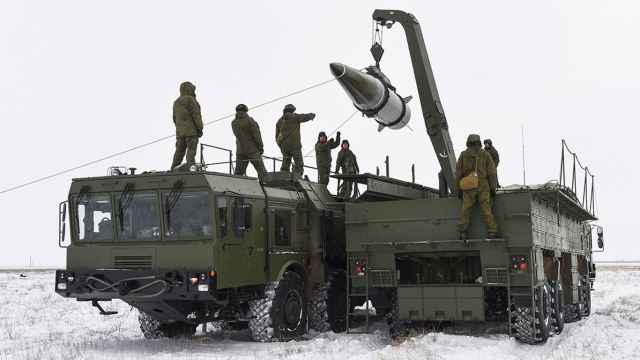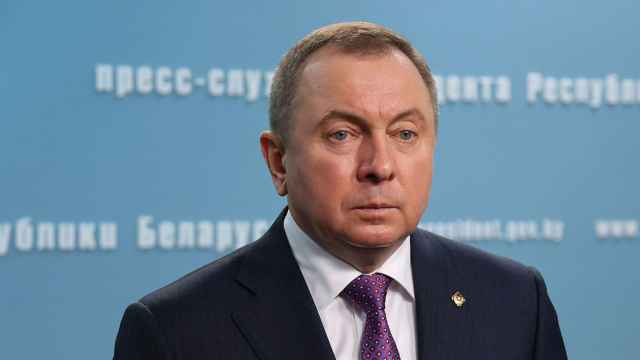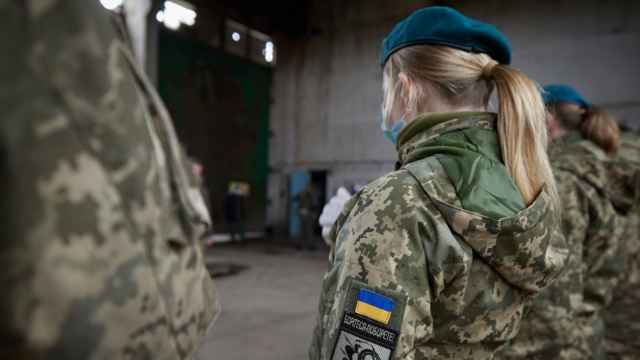The parents of serviceman Stanislav “Stas” Pivovarov had been trying for almost two weeks to find their 21-year-old son, who was sent to Ukraine in February.
In late March, the soldier's mother, Tatyana Pivovarova, finally saw her son — as a prisoner of war in a video published by a Ukrainian Telegram channel.
She wrote to the military unit in Ingushetia, where her son served, and requested official information on his whereabouts.
She received the reply: “Private Pivovarov is on assignment."
"He wasn’t in the lists of prisoners of war, but we found out that Stas was in a hospital in Dnipropetrovsk with a serious leg wound. We don’t know anything more, not even if he is alive now," Pivovarova told The Moscow Times.
“The Defense Ministry wrote that my son is on a mission, and that the video of him in the hospital is a fake. But how could I not recognize my son? It was him.”
Counting the dead
Russian Human Rights Commissioner Tatyana Moskalkova has received about 400 letters from relatives of servicemen sent to Ukraine who have stopped contacting their families, an employee of the office who wished to remain anonymous told The Moscow Times.
Estimates and statistics on the number of Russian servicemen killed, wounded or missing in Ukraine vary widely.
On March 25, the Defense Ministry reported that 1,351 Russian servicemen had been killed in Ukraine.
The Ukrainian military, in contrast, has reported 18,000 Russian troops dead. Citing military intelligence data, the U.S. Undersecretary of State said more than 10,000 Russian servicemen have died in the conflict.
In comparison, the U.S.S.R. lost about 14,000 men in its 10-year war in Afghanistan. The total of men killed in the two Chechen campaigns was 11,000.
The Defense Ministry and Kremlin spokesman Dmitry Peskov did not respond to requests for comment from The Moscow Times.
The final journey
In an interview with independent Russian journalists in late March, Ukrainian President Vladimir Zelensky said that Russia’s Defense Ministry had been refusing to take away the bodies of Russian soldiers.
"We don't want to keep the corpses,” Zelensky said. “At first they refused, then they offered to send some body bags. Even when a dog or a cat dies, you treat them better.”
A military lawyer who requested anonymity outlined the official procedure for handling the bodies of servicemen wounded or killed in action. "Special brigades collect the wounded, take away the deceased if possible, and record the dead,” he told The Moscow Times.
“Then the data is given to the commander, who writes a report and passes it up the command chain. But reports are very rough these days, and no one knows the number of casualties."
Bodies must be identified in order for soldiers to be declared as killed in action. “Witness statements or body parts are not sufficient,” said Anton Scherbak, a lawyer for human rights organization Soldiers' Mothers of St. Petersburg. “If a body can’t be identified, they do DNA testing.”
But soldiers who have not yet been identified as deceased do not automatically fall into the category of missing. Bodies not returned to Russia, unidentifiable or buried in Ukraine are also not included in the list of those who were killed in action, lawyer Anastasia Burakova told The Moscow Times.
These men, she said, “have no legal status and are listed neither among the dead, nor among the living.”
After a year of no contact, soldiers’ relatives can apply to a court to have a serviceman declared missing in action.
President Vladimir Putin promised that the families of servicemen killed in Ukraine would receive 7.4 million rubles (approx. $90,000) each. If a serviceman’s death is not legally established, relatives will not receive compensation, Burakova and Scherbak said.
For many families, this court order is also their only chance of closure.
Lessons from the Chechen wars
Families who do choose to wait for their relatives to be formally identified, however, can face a wait spanning decades.
More than 100 unidentified soldiers and civilians who died during the war in Chechnya are buried in a cemetery in Rostov-on-Don. Their genetic samples are still kept in a database, but the likelihood of identification decreases every year.
A military forensic medical expert who identified victims of the first and second Chechen campaigns agreed to describe the process on the condition of anonymity.
"Every fragment is examined. Even if we assume that they all belong to the same body, it's a gigantic job," he said. “We immediately check for genetic similarities with presumed relatives, who usually are notified by this point or come to us themselves.”
"If people aren’t told about this ahead of time, they won’t know how and where to look for their sons. Unfortunately, not all of the men killed in Chechnya have been identified. Many didn’t have relatives, or we haven’t been able to reach them. In these cases, the dead are buried and their genetic material is stored, in case one of the families is found.”
The article was adapted and translated from The Moscow Times’ Russian-language service. You can read more of our Russian-language content here.
A Message from The Moscow Times:
Dear readers,
We are facing unprecedented challenges. Russia's Prosecutor General's Office has designated The Moscow Times as an "undesirable" organization, criminalizing our work and putting our staff at risk of prosecution. This follows our earlier unjust labeling as a "foreign agent."
These actions are direct attempts to silence independent journalism in Russia. The authorities claim our work "discredits the decisions of the Russian leadership." We see things differently: we strive to provide accurate, unbiased reporting on Russia.
We, the journalists of The Moscow Times, refuse to be silenced. But to continue our work, we need your help.
Your support, no matter how small, makes a world of difference. If you can, please support us monthly starting from just $2. It's quick to set up, and every contribution makes a significant impact.
By supporting The Moscow Times, you're defending open, independent journalism in the face of repression. Thank you for standing with us.
Remind me later.


